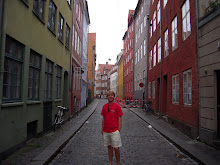Blade Runner proposes the question of what it means to be human and addresses the possibility of artificially creating human experience. Renee Descartes would say that the existence of a mind is paramount to being human. Pris quotes the philosopher while in JF’s apartment: “I think, Sebastian, therefore I am.” And the Replicants do have powerful minds and thought processes. For example, Roy, while at JF’s apartment, plays chess against his maker Dr. Tyrell and ultimately beats him. Deliberately chosen because of its use in mind science studies, chess is a game at which machines and computers have notoriously become superior to humans. In 1997, when the chess program Deep Blue beat human chess champion Gary Kasparov, the world was forced to address possibility that machines have finally surpassed humans in terms of intelligence. What makes Roy’s victory even more impressive is that he defeated his creator.

However, Roy’s mind and power are not enough to satisfy him, and this speaks to the larger problem that he has with his existence. Jean-Paul Sartre, in “Existentialism as a Humanism”, explains the relationship between an artisan and his creation, a paper-knife, in terms of essence and existence. Sartre concludes: “[the paperknife’s] essence—that is to say the sum of the formulae and the qualities which made its production and its definition possible—precedes its existence.” The paper-knife’s purpose was predetermined by its creator, so it came into being with a set definition, a set purpose. Similarly, Roy and the rest of the Replicants were created with purpose in mind: they were engineered to be slaves. But Roy has a problem with this existence—and with his imminent death by technical failure, evidenced by his hand-clutching throughout the film—which has spurred him to lead the escape out of imprisonment and confront his creator. What Roy faces is what Sartre calls “the first principle of existentialism”, which is “Man is nothing else but that which he makes of himself.” Roy feels the need to overcome his pre-determined destiny, a life of pre-determined length, and cannot let himself simply die before becoming more. He seethes for “more life” and more experience; he pains for a life that he can create for himself.
Rachel, who struggles with the reality of her Replicant-ness, adds an interesting twist to the debate on human vs. Replicant as well. In the scene after she saves Deckard’s life, the two have an intimate conversation that addresses the questioning of both characters’ identities. As the two sip liquor out of shot glasses, Deckard notes that the shakes they have are “part of the business.” Rachel corrects him, noting, “I’m not in the business. I am the business.” This moment of self-realization changes the dynamic of their relationship: she is his prey. But soon after, as Rachel presses Deckard for more information regarding her existence as a Replicant, she poses him a question that fundamentally calls into question his identity: “You know that Voigt-Kampf test of yours? Did you ever take that test yourself?” Ridley Scott, having employed still, controlled camerawork, breaks this precedent and uses handheld as he focuses in on Rachel. This moment bristles with electricity and sends the audience’s head spinning. What if Deckard is a Replicant as well? There is no way for us to be sure of his humanity; the Blade Runner units were assembled in response to the Replicant uprising and, for all we know, they could be technological creations as well. Whose human after all?

The answer of Deckard’s Replicantness is beyond the point. It doesn’t really matter if he is human or Replicant because both, as evidenced by Roy, suffer the same existential anguish. Though Roy’s suffering is more imminent than most everyone else’s—his life is about to come to an end, about to end without him having made sense of it—his struggle is a universal one. Every human must cope with a shared fate: death. Everyone struggles to break free from the ropes of the created world and make meaning of one’s existence. The true thesis of the film is that, in creating machines that are increasingly intelligent, we will endow them with the same, unanswerable question we all face: in the end, what does it all mean?

No comments:
Post a Comment